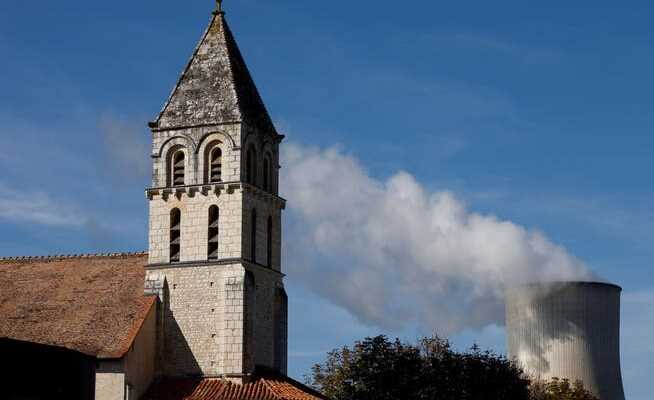The French coal-fired power plants were supposed to be shut down by the end of 2022, now they will guarantee France’s warm living rooms. Due to the shutdown of numerous nuclear reactors, the country’s power supply is currently on the brink of tipping.
Several nuclear power plants in France are struggling with technical problems.
In France, a new energy and climate law came into force on January 1st. Just two days earlier, the Environment Minister applied for an exceptional exception. Accordingly, the last two coal-fired power plants in the country, whose shutdown due to their high CO2-Emission is a done deal to be allowed to produce up to 1000 hours of electricity in January and February. That is significantly more than the 700 hours per year stipulated by law. The reason for this is the fear of a bottleneck in the power supply during the consumption-intensive winter months.
The government is worried about the most important sector of the national energy supply with 70 percent – the nuclear power plants. Of 56 reactors, 15 are currently shut down, more than ever before. The shutdown of the two reactors in Chooz, near the Belgian border, decided in mid-December as a «precautionary measure» is particularly significant. Together with the reactors in Civaux in central France, which were also decommissioned due to technical problems, the four most powerful reactors are currently out of operation.
The operator EDF explains the problems, among other things, with the fact that the regular maintenance work could not have been carried out as planned due to the pandemic. Last year, the national supervisory authority for national security allowed the operator EDF to extend the operating life of reactors, which was previously limited to 40 years, by ten years – on condition that they undertake work to improve their security. This affects 32 reactors. At the end of December, the network operator RTE warned of the risk of a historic low in the output of the power plant park: Instead of the maximum of 61.4 gigawatts, only between 43 and 51 gigawatts could be delivered in January.
No further change of plan
The proportion of energy generated with coal is small in France: in 2020 it was only 0.3 percent of total production. The contribution of the two power plants now covered by the exemption would be correspondingly low: They have an output of 1.2 and 0.6 gigawatts, respectively.
The total exit from the CO2-intensive electricity generation with coal power is a proclaimed goal of the government of Emmanuel Macron; two power plants have already been shut down during his term of office. The Ministry of the Environment emphasizes that the short-term increase in output does not change the plans: According to this, the power plant in Saint-Avold near the German border is to be decommissioned at the end of March. The last remaining coal-fired power plant in Cordemais in western France is expected to deliver electricity until 2024.
Originally, the plans were even more ambitious: The complete phase-out should have been completed by the end of 2022. But the network operator RTE warned of bottlenecks in winter, among other things due to delays in the construction of the EPR reactor in Flamanville and the expansion of renewable energy sources.
Environment Minister Barbara Pompili said soothingly before the holidays that there would be no general blackout. The use of coal power is due to the exceptional situation; However, it is not up for discussion to implement the energy transition at the expense of security of supply. In addition to resorting to coal, the government has a few other emergency measures to choose from to prevent a blackout. It has obliged some large companies to temporarily reduce their production at peak times. A short-term throttling of the mains voltage would also be possible. The last measure is targeted, previously announced «power breaks» in energy-intensive industries or in private households. These should last a maximum of two hours and the residents of the affected places should be announced the evening before. Critical infrastructure is to be excluded from this, as is the entire capital region, which is considered to be strategically too important.
Imports at record highs
The network operator RTE announced at the end of December that such relief measures would only be necessary if there were a cold spell (around 4 degrees below the expected temperatures of the season) and a calm wind in Europe in the coming weeks. France obtained only about 7.9 percent of its energy requirements from wind power in 2020. But imports are currently also playing an important role, including from Germany. A previous record was set on the Monday morning before Christmas with 12.9 gigawatts of imported electricity. In France around 30 percent of households have electric heating fitted. A cold spell forecast for the beginning of the year at the end of December did not materialize for the time being.
